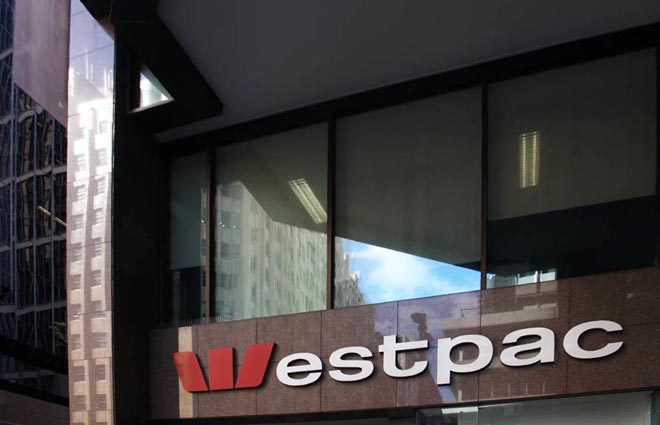A statement by Lindsay Maxsted Chairman of Westpac:

The past week’s events have been deeply distressing.
The issue raised by AUSTRAC that weaknesses in our systems failed to detect criminal actions by customers is incredibly serious and unacceptable. This is not the company we aspire to be and I, again, apologise unreservedly.
As a long-time director, shareholder and customer of Westpac, I know we can – and will – do better for all stakeholders in meeting our Anti-Money Laundering and Counter-Terrorism Financing obligations. Being one of the country’s biggest financial institutions, we are alert to the critical role we play in helping law enforcement agencies such as AUSTRAC prevent criminals from carrying out illegal activity.
Today, we provided an update on how we are responding.
These build on several actions we have already been working on, including implementing a multi-year financial crime program, undertaking leadership changes in risk and financial crime and doubling the resourcing dedicated to financial crime to around 750 people, which we expect will further grow.
As a starting point, it’s important to note that we understand the gravity of the issues raised by AUSTRAC and the importance of – and focus on – accountability. To ensure we get all the facts and assess the issues fully, we will appoint an external expert to provide independent oversight of the process and will make the recommendations public. In the interim, all or part of the 2019 short term variable rewards for the full executive team and several general managers will be delayed, subject to the assessment of accountability.
We also understand the importance of urgently fixing the issues raised by AUSTRAC, lifting our standards, and doing this effectively. As a board, we treat our oversight responsibilities with the utmost seriousness.
Our response has been divided into three areas: immediate fixes, lifting our standards and protecting people.
Firstly, we need to step up to better assist law enforcement agencies in tracking and ultimately stopping payments that can facilitate wrongdoing. When we introduced our LitePay product in 2016, transaction monitoring was put in place to identify suspicious transactions. However, more advanced monitoring, including updated “typologies” from AUSTRAC regarding child exploitation were not put in place for LitePay payments to the Philippines until June 2018.
While the updated detection scenarios are now in place for the Philippines across the SWIFT payment channel, we accept this should have occurred earlier and was not handled appropriately.
As part of our range of immediate actions, we are now closing LitePay.
Where Westpac flags transactions that suggest potential child exploitation in high risk locations, these transactions are now prioritised for action and reported to AUSTRAC within 24 hours. This is faster than regulatory standards require.
We have re-reviewed the 12 customers highlighted by AUSTRAC and taken action and are working with authorities. We are also providing $18 million over the next three years to International Justice Mission, a global not for profit that protects vulnerable people from violence, to assist their critical work in Southeast Asia in relation to Online Sexual Exploitation of Children (OSEC).
On the separate issue of International Funds Transfer Instructions (IFTIs) – which make up the bulk of the 23 million alleged contraventions of the AML/CTF Act – we have closed the relevant Australasian Cash Management (ACM) product enabling these transactions with foreign banks and reported 99.99 per cent of all the relevant transactions to AUSTRAC with the remaining to follow shortly.
For context, the vast majority of the IFTIs we failed to report related to two overseas “correspondent” banks. These are relationships that we have with foreign banks and include them using our infrastructure to process payments, in this case predominantly foreign government pension payments to people living in Australia.
Again, we accept this problem, while unintended, should not have occurred and dates back to a series of human and technical errors in 2010-11.
In terms of the second area of our response, lifting our standards, we are establishing a dedicated Board sub-committee for financial crime, which will commission an external expert to independently review our financial crime program. We are also investing $25m to improve cross industry data sharing analysis capabilities, including via potential partnerships with industry and government partners.
But we understand banking affects real people, which goes to the heart of our belief that banking is a service business rather than a product business.
As such, we will convene an expert advisory roundtable and provide up to $10 million per year for three years on the subsequent recommended actions to support the prevention of online child exploitation. We will also match the Australian government’s funding for its SaferKidsPH partnership with Save the Children, UNICEF and The Asia Foundation, investing $6m over six years.
These initiatives and actions are just the start and the board will continue to provide updates, including on accountability, while working constructively with AUSTRAC and other agencies.
As the board of Australia’s oldest company dating back more than 200 years, we are committed to showing all our stakeholders we can – and will – address these issues so we can continue playing our critical role for the economy into the future.
This seems to me, too little too late, and an attempt to “manage” the PR aspects of the issue. Frankly, senior heads need to roll. They do not get how much their brand has been trashed, and this stems from a basic set of cultural norms which are not aligned to community expectations. Behaviours, which are unfortunately widespread across the sector.

Apology , my arse.
Criminality at this level is treason .
Directors and senior staff need to be in jail.
Westpac needs to be wound up,
and administered as a public bank
for the benefit of we the Australian people.
not overseas powers.